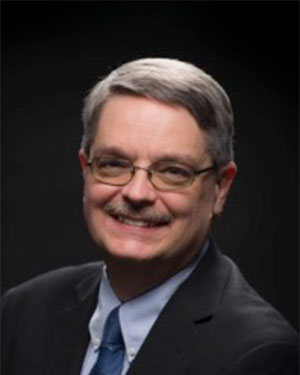Letter from the Chair
 The summer of 2019 is now in the history books and professors are preparing for the return of students. My tenure as chair of FOEP is now more than half over and time is marching on in its inexorable way.
The summer of 2019 is now in the history books and professors are preparing for the return of students. My tenure as chair of FOEP is now more than half over and time is marching on in its inexorable way.
Time is at the forefront of my mind these days. It is perhaps the most valuable commodity of all – time and tides wait for no man, and all that. And the reason that time seems so important to me is I look around me and see a highly technological society inhabited by people who often don’t fully appreciate the impact that pure science has had on their lives, ranging from vaccines, to the mastery of chemistry, to the modern marvel that is the cell phone. They need to know how much their day-to-day quality of life has been improved by scientific advances and every second they don’t is time lost.
You’re reading the FOEP newsletter, which means that you are likely a physicist or at last an avid fan of physics, and you also probably are interested in doing science outreach. Maybe you do a bunch of outreach already. If so, great, keep it up. But maybe you’re thinking about doing outreach, but haven’t started. Maybe you’re wondering what you can do, or maybe you’re waiting for the right time. But the right time is now. Society needs passionate voices extolling the virtues of science and technology and, indeed, the use of the scientific method itself. Technological problems facing society will be solved by critical thought, empiricism, constant testing, and refinement of ideas.
So, what can you do? Speak. Loudly. Often. But also you need to speak effectively and persuasively. And perhaps that’s where FOEP and APS can help. We can help you decide what sorts of outreach ideas would work for you and how to make your efforts succeed.
Are you comfortable in front of a small audience? Start a science night at a local pub or perhaps a weekend afternoon science chat at a local coffee house. Venues like that often welcome free entertainment. It takes a while to build an audience, but make it a monthly thing. Ask faculty members, graduate students, and others from all scientific disciplines to give a short public talk and then do a Q&A.
If you’re handy or have a great demo lab, consider making a physics road show. Liquid nitrogen shows are a hit among kids, as are electrical demos. Nothing like a sparking van der Graaf generator for a shocking presentation! These work at schools and at public festivals. There are many current successful shows that you could reproduce and show to local audiences.
If you have a particular passion, say space exploration or cosmology or sound, put together a fun public lecture and have your university or school help you advertise it. FOEP Chair-elect professor Jim Kakalios has turned a passion for comic book superheroes into a book, well attended public lectures, an invitation to ComicCon, television appearances, as well as a myriad of articles in various popular magazines.
And if you like to write, the possibilities are endless. You can blog, although building a following can be a slow process. If you are good at making short physics demo videos, there is YouTube and Instagram. Twitter and Facebook and Snapchat are great ways to connect with audiences. And don’t forget the time honored popular science book.
FOEP has the expertise to advise you on best practices for any of these approaches and more. And, if you attend the upcoming March or April meetings, we will have a series of invited lectures by experts in their fields. In 2019, we had talks by Sean Carroll on podcasts and Chad Orzel on social media. We had Alison Eck, social media editor for the website for the television show NOVA, and Ben Wiehe of the MIT museum talking about science festivals. The April meeting had professor Clifford Johnson of the University of Southern California, talking about his work with the Marvel movies. All of these people are willing to answer questions and provide guidance to aspiring science communicators. For those who cannot attend the APS general meetings, you can find resources and advice at this website.
If you’re considering beginning to do science outreach, now is the time to start. Pick a thing you’ll enjoy and do it. If you’re not sure how, ask someone already doing it. The FOEP executive committee will help you find local organizations to join and mentors with which to speak. Science communication is important and if you are thinking that you don’t have time, I’d like to leave you with one parting thought.
A year from now you will wish you had started today.
Don Lincoln
